
The ever-changing picture of Going to the Match
25.11.23
70 years on Philosophy Football 's Mark Perryman and Guardian football cartoonist David Squires revisit LS Lowry's greatest painting
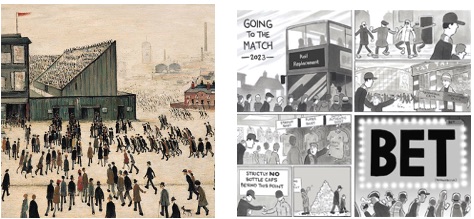
Reputedly a Man City fan LS Lowry's 1953 masterpiece Going to the Match depicted not Maine Road but Bolton Wanderers' then ground Burnden Park. A ground that no longer exists, long replaced by an out-of-town stadium named after a building products company who paid a decent sum for the right to have Bolton's home called 'The Toughsheet Community Stadium', having previously been known since 1997 as The Reebok, Macron and University of Bolton Stadium. What price the durability of history versus naming rights deals and their expiry dates? Guardian football cartoonist David Squires' 70th anniversary recreation of Lowry's original artistically catalogues seven decades' worth of this and many other changes.
Lowry's 1953 version of Going to the Match is of course most famous for his matchstick men Bolton fans, identically dressed, as far as we can tell all male, all white, the 1950s industrial working-class writ large. The manufacturing economy represented by factories hemming in Burnden Park from where these men exited the belching smoke for ninety minutes of unadulterated bliss. The factories long since closed down, working practices, class uniformity and what theorists term 'fordism', an entire way of life and social organisation gone with them.
Writing a couple of decades earlier JB Priestley put into words what LS Lowry had portrayed in his painting:
"It turned you into a partisan, holding your breath when the ball came sailing into your own goalmouth, ecstatic when your forwards raced away towards the opposite goal, elated, downcast, bitter, triumphant by turns at the fortunes of your side, watching a ball shaped Iliads and Odysseys for you; and what is more, it turned you into a member of a new community, all brothers together for an hour and a half."
Football remained relatively unchanged until the 1970s. The Manchester United players who lost their lives in the 1958 Munch Air Disaster weren't 'the subject of 'tragedy chants' instead Liverpool FC lent their bitterest rivals players so United could complete their season. When England won the World Cup in 1966 it didn't elevate the players into multi-millionaire celebrities. Ten years after Munich Man Utd win the European Cup at Wembley, lining up for their opponents Benfica Eusebio and Coluna immigrants from the Portuguese imperial outpost Mozambique, that rarity in those days, black players in a football shirt. For United their European Cup winning foreign contingent consisting of a Scot, a Northern Irishman, two Irishmen and a Scottish manager. The United 1999 team that won it for them the next time ? A starting line-up consisting of one Dane, one Norwegian, one Dutchman, one Swede, one Trinidadian and Tobagonian, one Irishman, one Welshman, alongside their four English players and a Scottish manager, bloody hell!
But it wasn't simply the globalisation of the line-ups that had changed in those intervening year, it was the monetisation of their playing skills too. Rome 1977, Liverpool win the first of six consecutive European Cups by English clubs. John Williams, author of a social history of Liverpool FC,The Red Men,describes the scenes in Rome after their victory and what has changed since :
“The extraordinary party in Rome after the 1977 final involved Reds supporters and the players together. These groups were still broadly drawn from the same stock, drank (and got drunk) in the same pubs, had pretty much similar lifestyles and diets, and footballers had not yet moved into the sort of wage brackets that later had them sealed off behind tinted-windowed cars the size of small armoured trucks.”
Globalisation of team line-ups, player wage rises that outstrip inflation a millionfold, and more, funded by no longer free-to-air broadcasting deals of a scale unimaginable prior to the 1992 creation of the Premier League and the Champions League, both serving to attract foreign investors to take over clubs and fund the largesse on a previously unimaginable scale.
In 1980 sociologist Stuart Weir described the state of the relationship in English football between clubs and their supporters as: "The clubs are under the control of local business elites who restrict the participation of their followers to separate supporters' clubs." "The clubs are under the control of local business elites who restrict the participation of their followers to separate supporters’ clubs. " There's only one word that needs to be changed in this sentence four and a bit decades on, local becomes global. In the era of Lowry through to the early twenty-first century clubs were owned by the local butcher, baker, candlestick-maker. In Man Utd's case quite literally, the Edwards family butchers. Now such owners are almost entirely replaced by Russian oligarchs (until the Ukraine war forced their sanctioning), European, Chinese and US investor conglomerates, and Middle Eastern petro-dollar states. Many favouring the multi-club model which is the money men's antithesis of what it means to be a fan. 'A multi-club fan' oxymoronic, and then some.
None of this however should allow an over romanticisation of football's past.
Lowry's Burnden Park in 1946 had been the scene of a stadum disaster, 33 fans died and hundreds more injured because of a human crush caused by poor crowd management. Happened again, Ibrox Stadium disaster of 1971. By the 1980s such horrors should have been confined to the history books, they weren't.
Last game of the 1984-85 season, Bradford City at home, they've already won the Third Division championship, a party atmosphere. In the 85th minute a fire starts in the wooden main stand. Season after season a pile of litter had built up in the space below the tier where fans were sat. An unlit fag started a fire which within minutes engulfed the entire stand. 56 fans lost their lives, simply because they'd gone to a football match.
The next day this is how the Sunday Times reported on football's part in the tragedy at Bradford City:
“A slum sport played in slum stadiums increasingly watched by slum people, who deter decent folk from turning up."
It is scarcely credible such words were used back then, the day after 56 deaths, but it is also scarcely credible such words would be used today to describe football, the stadiums games are played in and the fans in the stands.
But before that would happen yet another stadium disaster, 1989 Hillsborough, John Williams, again:
" The disaster was attributable to a planned general deterioration of public facilities in Britain, a development that had also brought a range of recent disasters on public transport, as Tory policies had prioritised the private sector and devastated areas such as Merseyside. It was difficult to avoid the conclusion that the deaths were also connected to deep-seated problems in terrace culture and poor relations between some football fans and the police. The English game had gone down a fatal route and was routinely treating all its customers (sic) as potential threats.”
The 1980s. Hillsborough, over 800 England fans arrested and deported from Euro 88, the team knocked out at the Group Stage, all English club sides banned from European competition following crowd trouble at the 1985 European Cup Final. Different causes, different consequences, but overall the game looked irrecoverable.
And then Italia 90, England the least welcome guest at the World Cup party, the draw fixed so all their group games played on the island of Sicily some 60 miles off the Italian mainland. In England's group, Holland, Egypt, amongst Africa's strongest teams, and the Republic of Ireland who'd beaten England at Euro '88. Home before the postcards reach England? That was the widely held expectation, and for our Italian hosts, hope.
The morning of the semi-final every English newspaper led their front pages with dire expectations of win, or lose, England fans rioting. But then instead an entire nation, from a night in Turin to a night as home spent 'an evening with Gary Lineker' and everything changed.
Pete Davies wrote a runaway Italia 90 best seller All Played Out and coined the brilliant term 'planet football'. Nick Hornby writes Fever Pitch about what it means to be an Arsenal fan, and in his wake just about every club finds itself having a book published too about what it means to be their fan too. Pre-digital media, club fanzines are written, published, flogged outside the ground, creating another alternative narrative of our fandom. A fanzine style football magazine When Saturday Comes on the shelves of WH Smith. The Football Supporters Association emerges as an effective and respected fans' campaign with the group's founder Rogan Taylor a hugely impressive TV and radio studio guest. Fantasy Football League starts, is adopted by every national newspaper, goes from being a cult radio show to peak time TV. And (obligatory product placement alert) Hugh Tisdale and Mark Perryman, a pair of self-styled 'sporting outfitters of intellectual distinction' co-found Philosophy Football.
All to the good, especially the T-shirts! But before the tournament had even begun one critic, Stan Hey, was already predicting what a successful Italia 90 on the pitch might produce beyond the touchline :
" The global success of football has almost certainly sown the seeds for the game’s corruption. There is now a momentum which seems to be beyond control. Those of us who have retained an optimism for football’s capacity for survival and ability to re-invent itself are already checking our watches. It’s starting to feel like we’re in injury time."
Injury time? Within two years of Italia 90 we were already well past that. In 1992 the English first division is reinvented as 'The Premier League' with the sinister Orwellian consequence that the old second division becomes The Championship, and to take the Orwellian to a ludicrous extremity the third and fourth divisions became League One and League Two, A pedant writes? No, as Orwell taught us, language matters because it is indicative of powerful forces at work behind the bastardisation of language.
And The European Cup, the finest cup competition in world football, bar none, in 1992 reinvented as a Champions and Rich Runners-up League. Purely to serve the interests of the mega clubs, the element of risk they might not make the competition's latter stages and win it, almost entirely removed.
Is there any hope that the commodification, the foreign investors the corporate sponsors, the media moguls won't have it all their own way?
Yes because in the 2021 summer of lockdown, fans of Arsenal, Chelsea, Liverpool, Man United, City and Spurs protested and defeated a proposal that entirely served their own self-interest. A so-called 'European Super League' with their clubs not having to compete for qualification but guaranteed entry not via points on the board but the marketing men's co-efficients.
No, those fans didn't look very much like Lowry's 1953 stick men going to the match, but they did stand up, to be counted, to win, and save at least for now and however much already compromised, a part of football's heritage, competition. Even if it meant it meant sacrificing a guaranteed place in Europe, where they all wanted their clubs to be. Win, lose, draw, the final score, league position, European qualification never a dead cert. Whatver the cost something every bit as valuable to those fans at Lowry's painting, sold at auction in 2022 for a cool £7.8 million.
And David Squires' version of Lowry's original? The commodification and regulation of our fandom, sponsors' logos ruining a classic kit, the scourge of ever-present betting, football on the phone, never mind the match in front of us, VAR, kick off times dictated by broadcasters at maximum inconvenience for away fans, our stadiums named after airlines and the like. Going to the match has changed a lot in seven decades, yet still we go. Thankyou LS Lowry and David Squires for reminding us then, and now, why.
David Squires redrawing Going to the Match 2023 is exclusively available as a Philosophy Football framed print and tea towel here
Mark Perryman is co-founder of the self-styled 'sporting outfitters of intellectual distinction', aka Philosophy Football
Bobby, Frannie and what we have lost
28.10.23
Mark Perryman of Philosophy Football explores the meaning of a game's loss

Bobby Charlton: 1966 World Cup Winner, 1967 First Division Champions, 1968 European Cup Winner. Frannie Lee: 1968 First Division Champions, 1969 FA Cup Winner, 1970 League Cup and European Cup Winners Cup Winner. The red and the blue halves of Manchester have always been divided, yet for four years were united – no not that United – in their pomp, a shared Mancunian Supremacy. Never before, never since, always been one, or the other, or neither. Only the city of Liverpool – no not that City – can boast anything similar, not that any Manc would admit as much. From seasons 1981-82 to 1989-90, just once did Arsenal break the Liverpudlian First Division Supremacy of Liverpool's six league titles, Everton's two. Clubs, cities divided, but united by these shared periods of quite extraordinary success.
Northern too. London clubs have had their moments, well Arsenal and Chelsea, but it is different in a two-club city when fans are for one and, against the other. Add the geographical antipathy to all things southern, and London in particular, how much all this meant to the fans is obvious.
This Sunday, City visit Old Trafford for the Manchester derby. Tuesday’s Champions League fixture at the ground came too soon for all the pomp and circumstance to mark the passing of undeniably United’s greatest, arguably England’s greatest too. Sunday will be a uniquely poignant moment for the vast majority of fans, red and blue, perhaps for a vocal minority the opportunity to offend too. Hence the emergence of the phrase ‘tragedy chanting’, indicative of a rotten element within all that is so magnificent about fan culture. Never a majority, or even close to, but ever-present nevertheless, it justifies itself by the warped morality of love for our lot, hate the other lot. It’s amplified by, cliché alert, though clichés are almost always borne out of a shorthand description of reality, the 'toxic masculinity' uniquely generated by a very particular version of male football fan culture.
But for the vast majority of fans, whether we follow United, England or not, the passing of Bobby Charlton has been marked by a sense of loss. The opportunity to connect this loss to a collective experience as part of a stadium crowd makes it all the more poignant and powerful. In a way almost no other act of mourning comes close, stands packed with the loudly raucous, transformed into universal silence and then the release of a huge shout when the moment ends.
Sunday’s derby will of course have an extra edge. City are enjoying a period of absolute dominance over United in terms of trophies won for an extended period. The reign of Guardiola is condemning the Ferguson era of even greater success to the history books and to date there is not much sign of a new edition. To extinguish this rivalry is to remove what makes football’s fan culture so uniquely special. The ingrained loyalty, the warm feeling inside that when the other lot chant “Where were you when you were shit?” we were there with our team, never forsaking them. keeping the faith, and now able to enjoy the success, the promotions, the cups and league championships won all the more, thank you very much.
Of course, none of this ‘being shit’ applies to either the period of Bobby Charlton’s greatest success, 1966-68, nor City legend Frannie Lee’s, 1967-70, the pair of them overlapping in life, and now in death, Frannie having passed away this month too. And they shared something else too. They were undoubtedly stand-out stars of their respective clubs, yet very much part of teams of all the talents too. Denis Law, George Best and Charlton at United. Lee, Colin Bell and Mike Summerbee at City. The site of Law, Best and Charlton‘s statue at Old Trafford is currently besieged by fans’ wreaths and tributes. City are currently finalising their own stadium statue for Lee, Bell and Summerbee. Football, however modernised, commodified and globalised it has become, can never escape from its history, good.
This history, however, shouldn’t be the subject of a hagiography. In those halcyon days of the 1960s it was a parochial game, a foreign player back then a Scot, Welshman, a Northern Irishman. It was a mono-cultural game too, black players almost entirely absent. In the stands by the seventies there was a racist layer of support that was to take shape in large numbers of votes for the fascist National Front and streetfighters for the neo-Nazi British Movement. The women’s game was close to non- existent, and where it did exist was frequently banned from using men’s pitches and facilities. None of this should be extinguished from our memorialising.
The greats of the 1970s and 197os for an older generation loomed large in our growing up as fans while for the fans of today feature as a star-studded cast of our club’s history. Whatever our age group the remembrance for all that they mean must be multi-dimensional if it is to connect past with present and future. There’s a need to frame what we miss in this moment of loss, the forces behind the changes from then to now, because as the philosopher Hegel so wonderfully put it, “Nothing is constant but change". And when the minute’s silence is over, to use Hegel’s maxim, we must loudly understand why our present, good, bad and in-between, is so vastly different to the past represented by those we mourn.
The memorial T-shirts Law, Best & Charlton and Lee, Bell & Summerbee are exclusively available from Philosophy Football
Mark Perryman is co-founder of the self-styled 'sporting outfitters of intellectual distinction' aka Philosophy Football
What's the connection between England and Scotland Euro 2024 qualification with internationalism?
21.10.23
Philosophy Football's Mark Perryman argues the need to mend the popular-political disconnect

England and Scotland have each qualified direct for Euro 2024, with Wales having more than a shot of joining them after the November round of qualifiers.
Not Team GB, the UK or Britain, but three nations sharing one small island. It has always been ever thus, since 1872, the very first football international, England vs Scotland, a dull 0-0 draw by all accounts. On the football pitch not only have Scotland and Wales secured what their respective nationalist parties strive for, independence, but England receives the independent recognition our political class endlessly deny us. The latest example? Labour Party membership cards in Scotland emblazoned with the saltire, in Wales the Welsh flag, in England no sign of St George but the Union Jack all over. Not only Englishness denied but subsumed into a Greater-Englishness and sod the Scots and Welsh.
Yet any politician who campaigns for the merger of our football teams into one, well an electoral death wish beckons not even Rishi could match. But surely all this only has one conclusion, an ugliness bordering on xenophobia? OK former Welsh legend Mark Hughes would be regaled from the stands all over England with the near-universal allegations of the carnal acts he was alleged to commit with sheep, well he's Welsh, isn't he? And England's national anthem (sic) booed so loudly by Scotland fans it is barely audible.
Nice? No, but worthy of some unpacking.
Was Mark Hughes, and for that matter Denis Law, George Best too, most of all p'raps Alex Ferguson ,any less loved by Man Utd fans because they weren't English? Of course not. And while his managerial career has now hit the rocks, for a good while, certainly fans of Blackburn Rovers, Man City and Fulham welcomed Mark Hughes as their manager and the success he brought them. Many no doubt having previously shouted their allegations about what he got up to with sheep! Kenny Dalglish, a Scot, ex-Celtic to boot, an all-time Liverpool legend another case in point. A Greater-Englishness co-existing, competing, with a more receptive, welcoming, localism.
And Scotland fans booing God Save the King, widely reported as showing disrespect to England's National Anthem? Which of course it isn't, because England doesn't have any such anthem to call its own. Rather it is the National Anthem of the United Kingdom, but Scotland, and Wales have independently, that word again,opted out to sing their own compositions. OK it is a bit of stretch to read too much into all this booing but the English should perhaps have more cause to look at the root cause, Britishness as a Greater-Englishness, the latter paying lyrical tribute to a system in two lines of the anthem's first verse, thankfully the only one ever sung.' happy and glorious long to reign over'. There we have it, Englishness as subjecthood which we then seek to inflict on others, the singing of, and worse. In all our interests, to deconstruct, loyalties getting in the way of.
Andthere is another dimension to all this, where England and Scotland are heading, the Welsh possibly, Germany, Europe, the Euro's.
The year Britain voted to leave the EU England and Wales were battling to stay on the continent, in the shape of Euro 2016. The Welsh having their best ever campaign to do so, reaching the semis. Yet none of this earned a single mention in the ill-fated 'Remain' campaign. Europe thus reduced to a single institution, the European Union, which apart from those strange individuals who go on Remain marches in their EU flag berets, most of us endure but haven't got a massive beef to remove ourselves from either. Jeremy Corbyn was lambasted during the course of the campaign when asked what he'd give the EU out of ten, his answer 'seven'. Apart from those beret-wearers, I'd suggest where most of us are.
But think of the line-up-of our clubs' first team squads, for a fair few clubs, managers and coaches, the beers we drink on the way to the match or while we watch on TV, the fast food we wolf down, the supermarket shelves for our suppertime afters, and more drink, where we holiday, but most of all the one place we dream of all our clubs getting into, E-U-R-O-P-E. Then search in vain throughout the referendum campaign for any sort of expression of any kind of version of such a popular Europeanism.
Or irony of ironies the one time the EU flag makes an appearance in sport, the Ryder Cup. Golf, standard-bearer of a popular Europeanism, who'd have thought it?
The absence of all this, from the 'Remain' and now 'Rejoin' campaign, there's no worse example of the political class - popular culture disconnect.
Will Euro 2024 be another missed opportunity to make this this connection between the popular and the political? As an England fan I can't wait for the supremely gifted Jude Bellingham, from Stourbridge in the West Midlands - via Birmingham City - to Borussia Dortmund in Germany - and now to Real Madrid, young, gifted, black, English and European, to light up next summer's tournament as a big up yours to all the small-nationhood, stop the continent we want to get off, Faragism would to my country. And along the way, I admit it, wishing those neighbours of ours on this one island, all the best as they celebrate a nationhood. A nationhood the English outside of a tournament summer are denied, before its back to the old regime of a Union and the political baggage this Greater-Englishness brings with it, the martial, the imperial . Not much good for us, not any good for our neighbours, and absolutely no use to Europe either.
But before we get too lovey-dovey just keep Scotland, and if they're there Wales, away from us in the draw. OK?
The Philosophy Football England and Scotland Euro 2024 shirts are available from here
Mark Perryman is co-founder of the self-styled 'sporting outfitters of intellectual distinction' aka Philosophy Football
Ten Books (and a T-shirt!) for Understanding Labour Party Conference 2023
06.10.23
Mark Perryman offers a highly personal reading guide to the last Labour conference before the 2024 General Election
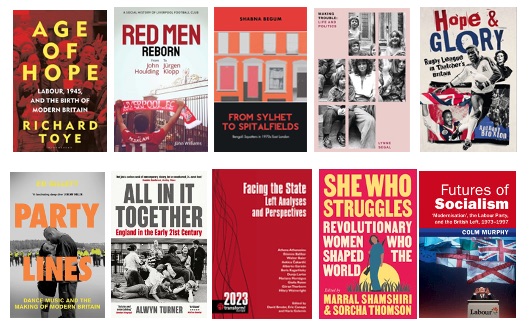
After an unlucky, for the many very unlucky, thirteen years, the first five 2010-15 with a little help from Nick Clegg's Lib-Dems, of the Tories in power, a Labour government now beckons. In preparation all things Keir, bright, shiny and new gather for Labour's final party conference before a General Election at some point in 2024. Well perhaps not that new, not if we allow history to get a peep in to the proceedings. Here's ten books to help us do precisely that.
1. Richard Toye Age of Hope:Labour, 1945 and the Birth of Modern Britain
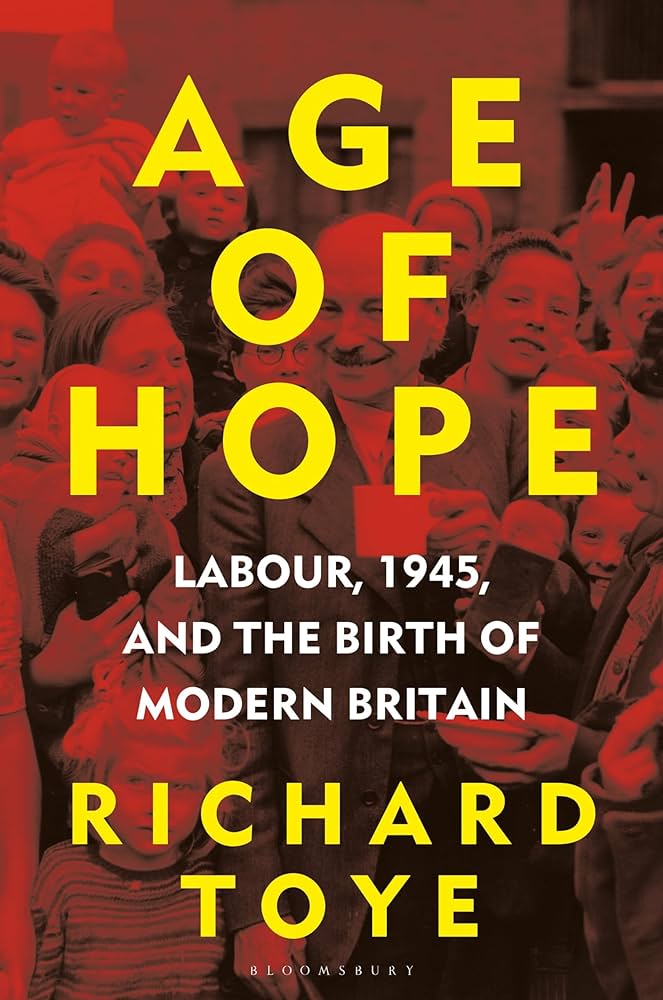
If Labourism was a religion the source of its faith would be Attlee and all things 1945. From the NHS, the welfare state and comprehensive education to the nationalisation of public utilities, coal, gas and electricity. A faith that helped establish a post-war consensus until 1979 when Thatcherism brought all this to a shuddering end, and never restored since. Richard Toye offers no hagiography of the 'Spirit of '45', rather an historical context of what came before, what came after, and leaves us thinking about the extent Labour can restore what has been lost.
Available from Bloomsbury Continuum here
2. John Williams Red Men Reborn:From John Houlding to Jürgen Klopp
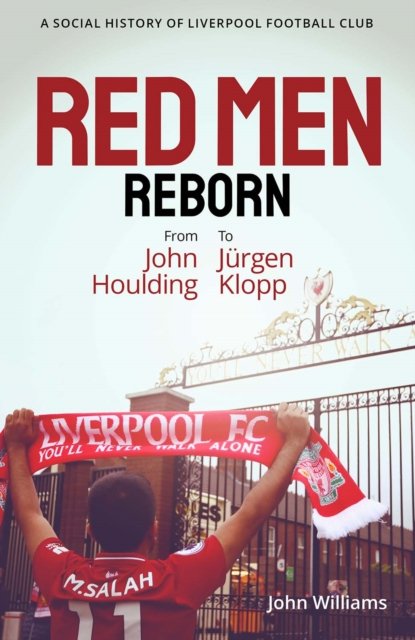
The north-south divide of party conferences used to be the alternating duopoly of Blackpool/Brighton, now the former for Labour replaced by Liverpool, with the greatest respect to Evertonians, a 'red' city. For a less conventional start to conference revisit the survival of Bill Shankly's 'The socialism I believe in is everyone working for each other, everyone having a share of the rewards. It's the way I see football, the way I see life' ( product placement alert, words proudly worn, of course on a Philosophy Football T-shirt) as an ever-present in this otherwise entirely modernised club. A lesson for Labour? Read John Williams' superb social history of Liverpool FC to see if any lessons can be learnt.
Available from Pitch publishing here
3. Shabna Begum From Sylhet to Spitalfields:Bengali Squatters in 1970s East London
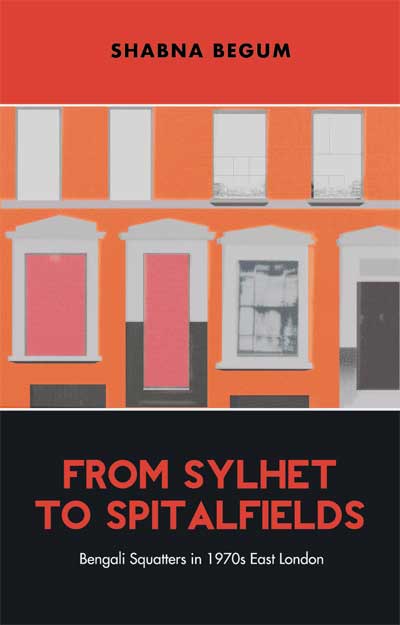
The 1970s, institutionalised racism in (mainly Labour controlled) council housing while on the streets a revived East London fascism in the shape of the National Front. Caught in between a Bengali community from which emerged a squatters movement barely acknowledged by more conventional histories of both the area and the period. Shabna Begum challenges such an omission and begs the question when watching the 2023 Labour conference proceedings do such omissions remain today?
Available from Lawrence Wishart here
4. Lynne Segal Making Trouble:Life and Politics
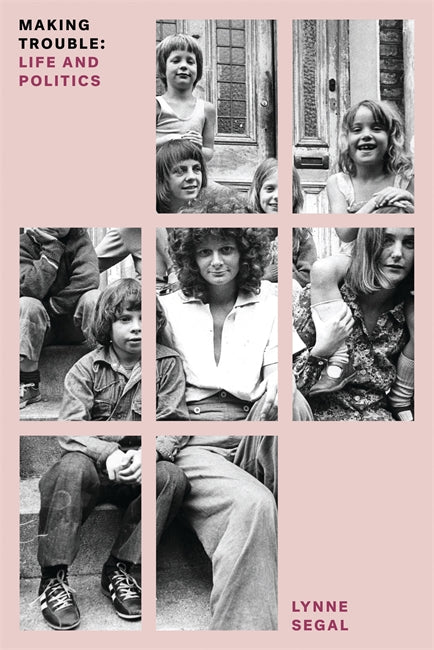
Another take on the 1970s and omission is provided by Lynne Segal's autobiographical account of the period. Wilson vs Heath,Thorpe getting a look-in, two great Miners' Strikes, the 3-Day week, the vote to join the Common Market, the emergence out of all this of Thatcherism. While on the margins, the growth of social movements, most potently feminism, were never enough to transform the mainstream yet had too much of a potency to ignore, however hard some tried. To achieve such weight in the 2020's there's some awkward lessons to be learnt from this most splendid read.
Available from Verso Books here
5. Anthony Broxton Hope & Glory:Rugby League in Thatcher's Britain
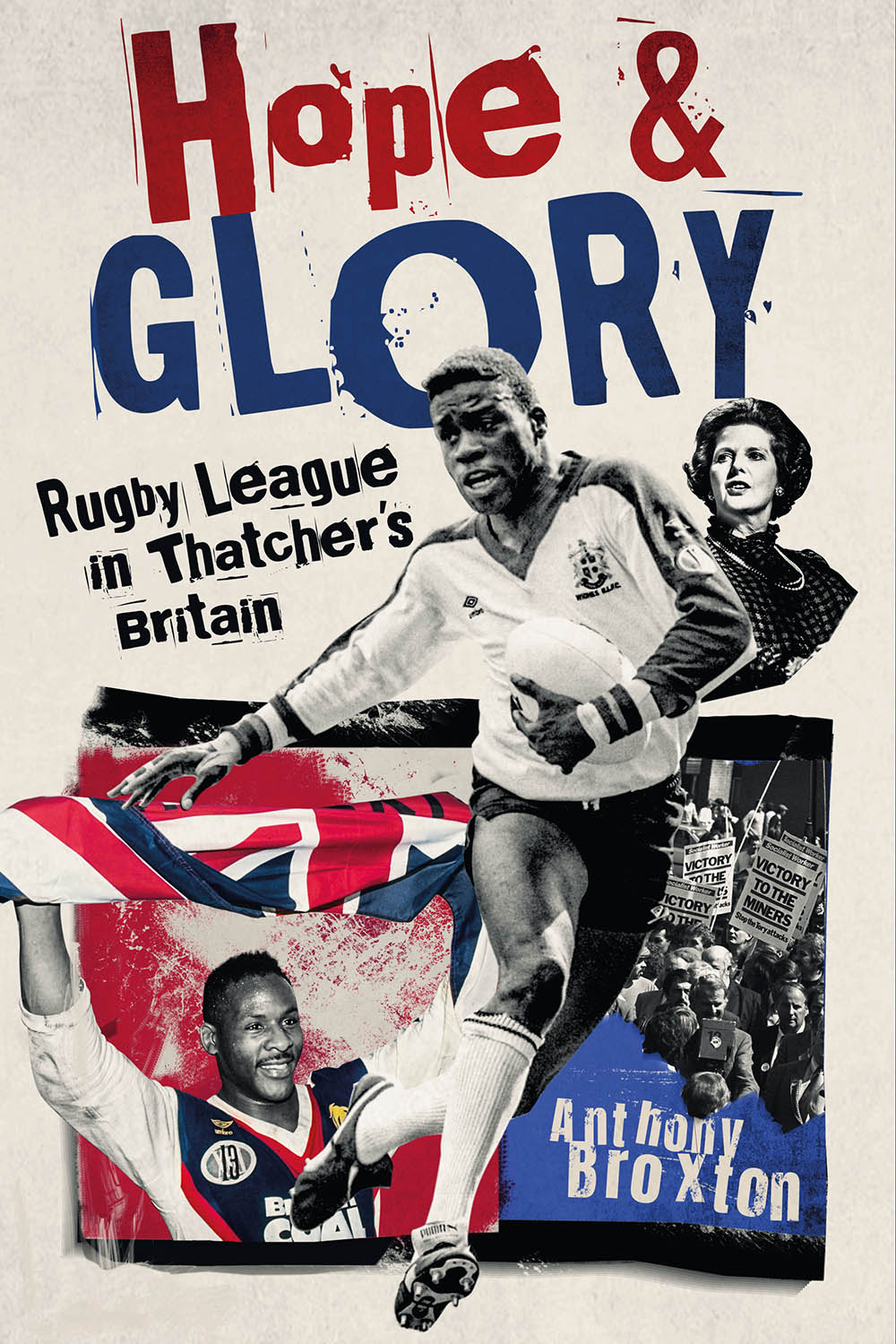
Perhaps it is a little unfair to judge Labourism's relationship with popular culture via the deliberations of Labour Party Conference. But as the single biggest gathering of party members in one place I'd argue it's as good a place to start as any. Compare what we hear in the set-piece speeches from Keir and senior Shadow Cabinet members with Anthony Braxton's innovative account of Thatcherism, resistance and Rugby League. Or tour the conference fringe in search of anything like Anthony's grasp of class, popular culture and politics. No joy? Read this book for a sense of what Labour is missing out on.
Available from Pitch Publishing here
6. Ed Gillett Party Lines:Dance Music and the Making of Modern Britain
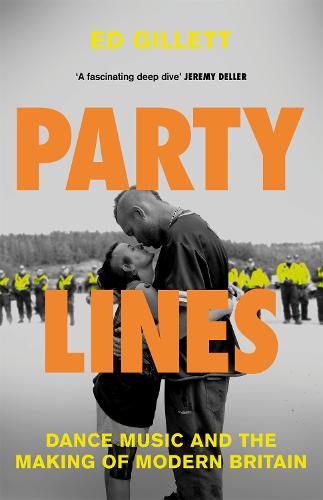
Or how about music and dance? Ed Gillett charts a movement of resistance and change that existed almost entirely outside of the party political. Labourism is surely the weaker for not finding the means to engage, and be changed by such an engagement. In part this is generational, Ed's book centres on the radical potential of 1990s dance music, the era of illegal raves, huge open-air gatherings and the 1994 Criminal Justice Act. But several decades on the fear remains that in Keir's dash for respectability the gap between party and parties will simply widen to turn into mutual hostility. What a waste.
Available from Picador here
7. Alwyn Turner All In It Together:England in the Early 21st Century

Alwyn Turner is the unrivalled historian of late twentieth century Britain with Crisis? What Crisis? Britain in the 1970s followed by Rejoice! Rejoice! Britain in the 1980s and concluding with A Classless Society: Britain in the 1990s. A splendid trilogy though reading one's youthful teens through to thirtysomethings as history is enough to make baby boomers feel old. Now it's the turn of millennials to start feeling the same way as Alwyn turns his attention to the Blair, Brown and Cameron years. Under the influence of Blair this period as primer for Keir at Number Ten? We won't have too long to find out.
Available from Profile Books here
8. David Broder, Eric Canepa and Haris Golemis (Eds) Facing the State:Left Analyses and Perspectives
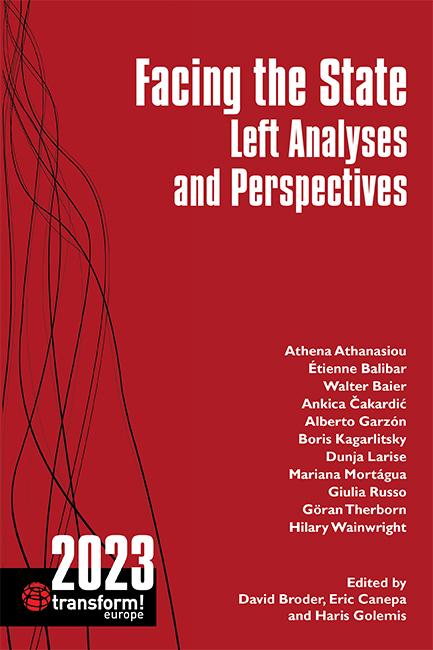
The days of 'Pasokification', an analysis pioneered by James Doran, appear to be long gone. In the 2010's Syriza, Die Linke, Podemos, Bloco, Rifandazione and Mélenchon challenged Europe's previously dominant social democratic parties from the Left. Without Proportional Representation a forlorn task in Britain, instead such a challenge came from within Labour, Corbynism. The annual Transform Europe! collection brings together writings and ideas from what remains of this challenge across the continent. The standout essay for me however is from these shores, Hilary Wainwright on the greening of socially-useful production. An absolutely vital argument in the face of trade union sectionalism that resists just such a change, aided and abetted, despite Ed Miliband's best efforts, by an over-cautious Labour leadership.
Available from Merlin Press here
9. Marral Shamshiri and Sorcha Thomson (Eds) She Who Struggles:Revolutionary Women Who Shaped The World
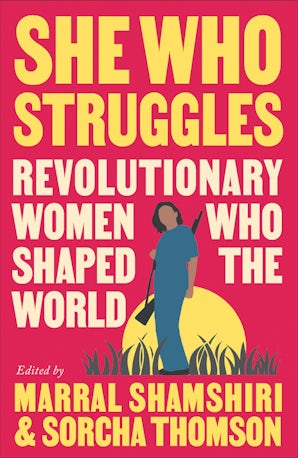
Ellen Wilkinson, Barbara Castle, Audrey Wise, Harriet Harman, Mo Mowlam, Diane Abbott, Angela Rayner and plenty more from where that lot came. Part and parcel of Labour's past, present and future too? With Keir in the space of twelve months expected to be Prime Minister, and a whopping majority enough to virtually guarantee two terms, barring some kind of upset the next Labour leadership election could be a decade away. The long wait for Labour, unlike the Tories, Lib Dems and Greens, to have a woman leader continues. Would this change the party entirely? No, but neither is this absence irrelevant. For an idea of what a difference women can make to movements they are central to She Who Struggles will inform and inspire in huge measure.
Available from Pluto Books here
10. Colm Murphy Futures of Socialism:Modernisation, the Labour Party and the British Left, 1973-1997

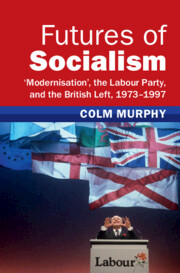
For my top pick Colm Murphy's hugely impressive account of Labour's transformation out of the lows of a crushingly disappointing end to being in government, followed by years,and years of defeat (sounds familiar?) cannot be faulted. Was where Labour ended up, Blairism, a self-fulfilling prophecy after Michael Foot and Neil Kinnock's failings plus the Bennite retreat? Not at all, this book is no 1990s tribute act, rather the debates, and alternatives, tracked and critiqued. To be read as a cautionary accompaniment to the irresistible rise of Sir Keir post-Corbyn. One plea though to author and publisher. This book has a sizeable potential readership from a broad spectrum across Labour and beyond. It should be snapped up in Liverpool by delegates but is only available as an £85 (!) hardback edition designed for university libraries. When will academic publishers ever escape from their crushing lack of ambition? C'mon, a mass market paperback edition pronto please.
Available from Cambridge University Press here
Note No links in this review are to Amazon. If you can avoid buying from a tax-dodging platform which exploits their low paid workers please do.

Philosophy Football Shankly 'socialism' T-shirt availble fromhere
Mark Perryman is the co-founder of the self-styled 'sporting outfitters of intellectual distinction, aka Philosophy Football
If The Old Oak is Ken Loach's last
30.09.23
An unrivalled legacy of films summed up by Mark Perryman of Philosophy Football

Ken Loach's latest film The Old Oak, opening in cinemas this weekend, is being widely reported will also be his last. At 87 if it really his time for Ken to hang up the clapper board and exit across the cutting room floor there is little doubt that apart for his bitterest critic (see below) this is a moment to mark an unrivalled career in film.
Documentaries, thrillers, historical pieces Ken's made the lot but what makes most of his films which exist outside of these genres so special is their mix of comedic socialist-realism. An unashamed socialist a Ken Loach film always provides a compelling exposure of society's failings while never omitting a lighter touch to lift spirits and aspirations. It was the left wing writer David Widgery who was the first to name a fundamental cultural failing of the politics he uncomfortably belonge to, 'miserabilism'. Without exception Ken's films, however depressing the circumstances they depict, confrotnted this failing, always finding the means to go above and beyond leaving his audience feeling miserable. That's not to say he's a hopeless romantic in the manner of many films that seek to portray the sunny side up of capitalism. Instead, his work is rooted in an unapologetic, some would say unreconstructed, class politics centred on the liberatory potential of collective action, in particular trade unionism.
Compare and contrast to Richard Curtis, a latter-day contemporary. Four Weddings and a Funeral (1994), Notting Hill(1999) and Love Actually (2003) a trilogy it would be a tad miserabilist to deny chuckling along to, but this was a twee, middle-class version of England entirely disinterested in anything apart from its unchanging self. The coincidence with the ascension of Tony Blair surely not coincidental. And plenty of others from where that ilk came ever since.
Of course, there are films that share Ken Loach's cinematic ambition. Brassed Off (1996) and Pride (2007) two obvious examples, both depicting the 1984-85 miners strike in a Loachian manner and along the way a counter-narrative to Blairism. But these were pretty much one-offs, fondly enjoyed because they were so rare. Steve McQueen's extraordinary Small Axe (2020) five-film anthology, each film revolving Immigration, racism and resistance, the shared location London, is perhaps the closest thing yet to what Ken Loach has managed to achieve. Let's hope for more.
But what, to date, makes Ken unique is the scope and longevity of his work, he has kept on, keeping on, making films for the best part of sixty years. An incredible achievement, and while the values he champions, and to some extent the subject matter, have remained unchanging, never, ever, samey.
The early days classics Up the Junction (1965) Cathy Come Home (1966) and Kes (1969). The 1990s Riff Raff (1991). His first Palme d'Or for The Wind that Shake the Barley (2006). Featuring Eric Cantona as himself in Looking for Eric (2009) followed by the late flowering of I Daniel Blake (2016) and Sorry We Missed You (2019). Homelessness and poverty, the 'gig economy', Irish republicanism, mod£rn football, the cruel indignities of the social security system. What other film-maker can match Ken for this kind of subject matter and damn good films to boot. But don't take my untutored word for it. Just a short selection from an impressively long list of awards Ken Loach has won. The 2006 Palme D'Or for The Wind That Shakes the Barley and in the same year he was awarded the accolade of a BAFTA Fellowship. In 2012 the Cannes Jury Prize for The Angels Share. In 2016 he became one of the few to win a second Palme D'Or, this time for I Daniel Blake, the same film also landing the 2017 BAFTA for outstanding British film of the year.
Film reviewers greet his films with near universal praise. The Guardian has made The Old Oak its 4-star film of the week describing it as 'a ringing statement of faith in compassion for the oppressed'. While the Evening Standard welcomed The Old Oak with this ringing endorsement 'we need someone with Loach’s righteous fury to make films about the deplorable treatment of Britain’s often invisible and maligned underclass'.
Not a single reviewer, not a single awards jury, his films have won an astonishing 117 awards in total has ever cited Ken Loach for antisemitism. And as an occasional filmgoer I can't for the life of me remember a single anti-semitic trope appearing in any of his many films. Which rather leaves the Labour Party expelling him for antisemitism a lomg way out on a limb does it? And begs this question – what does the Labour Party know that legions of film reviewers, film award panels, and filmgoers don't?
Endlessly repeated Labour figures claim Ken's expulsion was for antisemitism, but it wasn't. Most recently Rachel Reeves made precisely this claim until unlike most she was corrected by her interviewer Simon Hattenstone, who happens to be Jewish. Yes, Ken signed a petition protesting against members – a high proportion who are Jewish – being expelled under the charge of antisemitism. That's a protest, not a trope. A celebrated former Director of Public Prosecutions is presiding over the replacement of this right to protest, to replace it with guilt by association. And along the way as under Sir Keir Labour expels more Jewish members than any other time in its history, the title of a much celebrated account of antisemitism, Jews Don't Count, is reinvented by Labour as 'Some Jews count more than other Jews.'
The absurd scale of Labour's demonisation of Ken Loach became apparent when earlier this year Labour North of Tyne Mayor Jamie Driscoll was banned from standing for selection to become the party's candidate for North East Mayor because, checks notes, he did a live interview with Ken Loach at one of Newcastle's leading arts venue about the film, The Old Oak, and two previous I Daniel Blake and Sorry We Missed You he'd made in Jamie's patch... the North East. The supposed reason for the ban? By interviewing Ken Loach Jamie Driscoll was allying himself with anti-semitism.
Has Ken ever erred to such an extent to deserve being ostracised by Labour, and only by Labour, to such an extraordinary extent? In 1987 Ken directed the play Perdition written by his long-time collaborator Jim Allen, which was then withdrawn before opening at the Royal Court Theatre. The play centred on a much-contested suggestion that one branch of Zionism sought to negotiate with the Nazis free passage to enable some Jews to escape being sent to the concentration camps. In typing those words the very obvious explosion of anger that giving any kind of platform to such a tale can act as a means to legitimise anti-semitism is startlingly obvious. In my personal opinion Ken's was a bad choice, but enough to disqualify his entire legacy of work? I don't think so. At the time, 1987, Neil Kinnocks' Labour Party leadership, not exactly backward at expelling known Trotskyists and others, didn't think so either, taking no action against Ken who'd been a party member since 1962. Is the suggestion therefore that Kinnock, was soft on anti-semitism? Well if he was why does he continue to sit in the House of Lords as a Labour Peer? Put simply, none of this adds up and outside the world of the current Labour leadership few would countenance a blanket ban on Ken Loach or any kind of association with him.
So, this weekend as Ken's film opens what is it to be?
A Labour Party three-line whip barring the Shadow Cabinet, MPs and members from a crafty looksie at The Old Oakaccompanied by Constituency Labour Party picket lines (oh I forgot Labour MPs are barred from those too) outside the flicks to collar any waverers. Because that is the logical conclusion of where Labour's strictures on Ken Loach have ended up. Anything less and we're tempted to suspect all the huff and puff about Ken's anti-semitism is for show, surely not?
Or a celebration of a much-loved maker of films that fire up indignation and hope in equal measure. Films that depend not on a star-studded line-up but jobbing actors we've never heard of, and for most parts those who've never even acted before. The Old Oak follows this uniquely Ken Loach tradition and is none the poorer, quite the opposite, for it. And Ken Loach is most certainly the only director who would choose (spoiler alert) as the happy ending to his final film Syrian refugees and a former mining community coming together to make a banner they then march behind together at the Durham Miners Gala. The words they choose for their banner? ' Strength, Solidarity, Resistance' in English, and Arabic. What a way for Ken to close his final film. Makes a great banner, and a great T-shirt too, available from...

Exclusive, and strictly unofficial Philosophy Football Ken Loach Old Oak Banner T-shirt from here
Mark Perryman is the co-founder of the self-styled 'sporting outfitters of intellectual distinction' aka Philosophy Football
Top Ten Beach Reads to Warm up a Long Hot Summer
22.07.23
Philosophy Football's Mark Perryman makes his annual selection of holiday page-turners
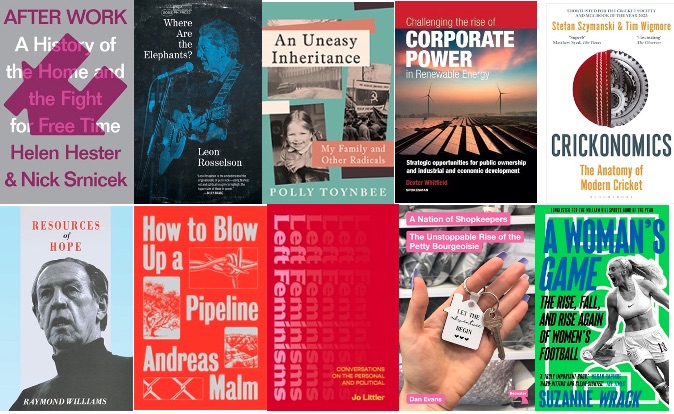
OK with southern Europe temperatures approaching sub-Saharan levels while England's south coast summer heat is close to Mediterranean a 'long hot summer' may be the last seasonal request on most of our minds. But then of course the phrase is more associated with 1968 and all that , the continental predecessor of our domestic version, the decidedly Anglicised 'winter of discontent.'
A top ten to read, revolt, and in between recline.
1. Leon Rosselson Where Are the Elephants?
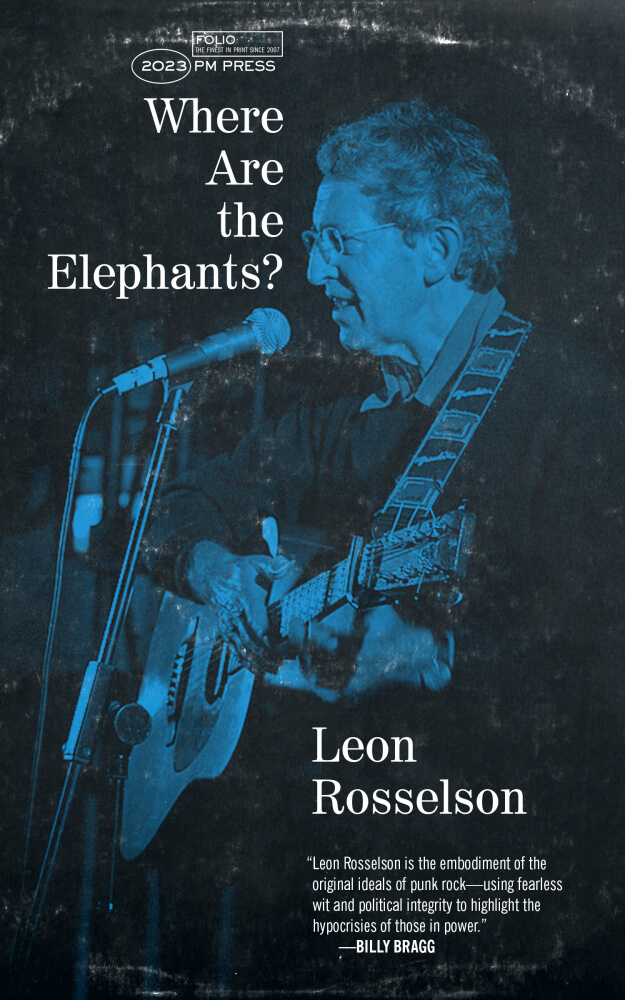
One of the founders of folk as protest Leon Rosselson weaves his own musical and political journey into an extraordinarily powerful account of how with acoustic guitar and a good tune while we may not be able dance to it the spectacle of how and why we must change the world is more than enough to have us humming along.
Available from PM Press here
2. Suzanne Wrack A Woman's Game : The Rise, Fall and Rise Again of Women's Football
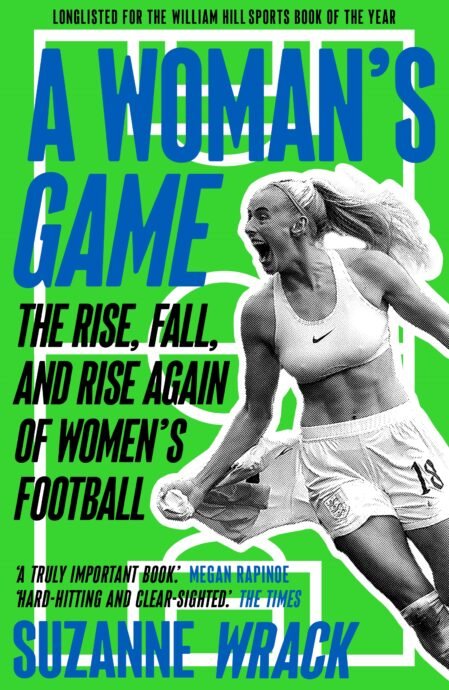
Until the 20th August Final the Women's World Cup will dominate the sporting summer, maybe. Jostling for position through the Group Stages with the Ashes and then as the knockout matches ensue the start of the men's season will likely dominate. The time difference doesn't help either. Suzy Wrack's book brilliantly explores the causes of such inequality and the force for liberation women's football can become. The Lionesses lifting the trophy wouldn't do any harm, and then some, either.
Available from Faber & Faber here
3. Stefan Szymanski and Tim Wigmore Crickonomics : The Anatomy of Modern Cricket
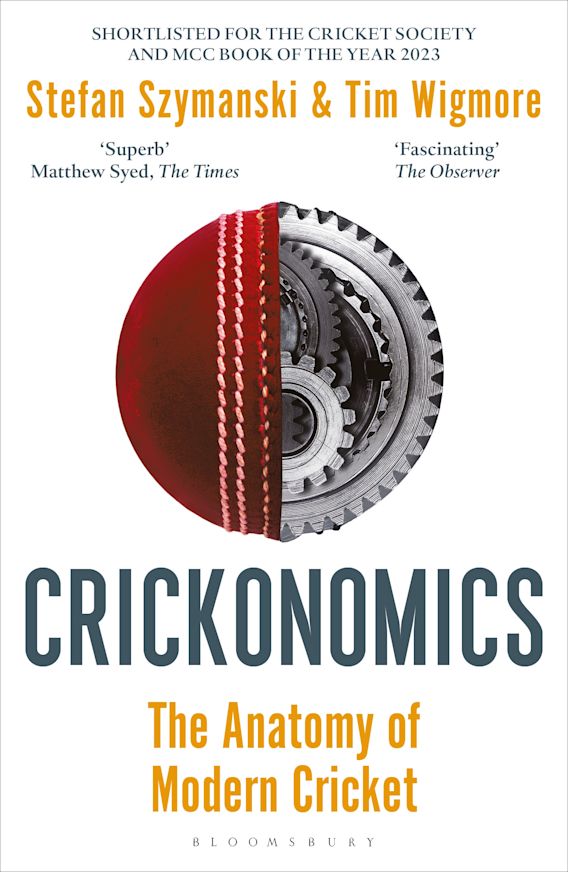
Co-author with Simon Kuper of the groundbreaking Soccernomics Stefan Szymanksi has partnered with cricket writer Tim Wigmore to do something similar for a sport that long departed the village green to become a quasi-global Behemoth. 'Quasi' in the sense that more than any other sport cricket remains framed by the legacy of Empire. Yet uniquely this sport is being reinvented from the global south, in the shape of the Indian Premier League. This is the book to get to grips with such a tasty contradiction.
Available from Bloomsbury Sport here
4. Raymond Williams Resources of Hope
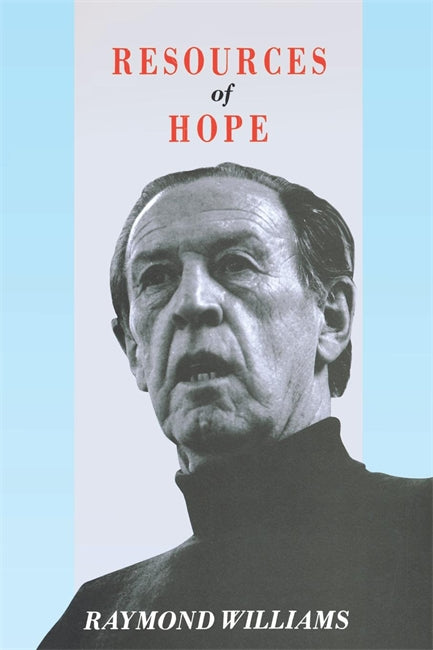
Folk music, football, cricket, what about some so-called serious reading matter? We have the theorist Raymond Williams to thank for the counter-argument 'culture is ordinary' which he brilliantly developed into the argument that it is culture that provides not only the tools for creative effort but also the means for a way of life. And crucially the latter wasn't the preserve for just 'high' culture. Want to understand idealism, gender, the post colonial? Start with music, football, cricket. Resources of Hope helps to show how.
Available from Verso here
5. Helen Hester and Nick Srnicek After Work: A History of the Home and the Fight for Free Time

What characterises the writings of Raymond Williams is a practical utopianism rooted in both a sobering assessment of the present with an abundance of hope for the future. At a super-micro level this is precisely what After Work provides, what could be more micro than the home? Yet in this space much neglected by a meta-politics our lives are shaped, relationships negotiated, prospects over-determined. As a building block for change this splendidly written book makes a most powerful case for the opposition.
Available from Verso here
6. Dan Evans A Nation of Shopkeepers : The Unstoppable Rise of the Petty Bourgeoisie

A rather good phrase that Keir Starmer has been using of late is the 'class ceiling' though whether he has the politics to shatter it remains a point of considerable conjecture, and that's putting it politely. The starting point to arrive at such a moment of change must always be a rounded understanding of class relations. Ruling Class? Tick. Working Class? Tick. The bit in the middle (sic)? Much neglected, the middle classes, Dan Evans puts that right with an extended polemic that combines the sharply critical with how such criticism can be the basis of a transformative politics to the benefit of all.
Available from Repeater here
7. Polly Toynbee An Uneasy Inheritance : My Family and Other Radicals
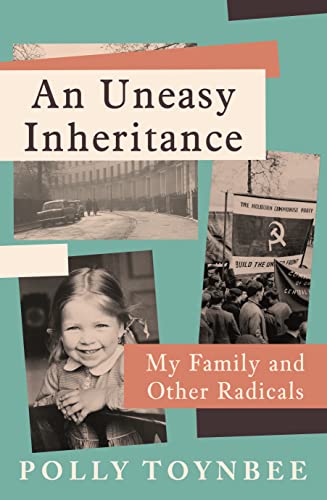
Covering similar ground, but in an entirely different way Polly Toynbee, the doyen of the tofu-eating Guardian-reading wokerati. Mixing her own family's background with a powerfully written account of Polly growing up this is the feminist maxim 'the personal is political' writ large, and very well. A soft touch compared to the Dan Evans polemic? Not at all, a plural left learns to appreciate how different contributions complement one another precisely because they are different.
Available from Atlantic books here
8. Jo Littler Left Feminisms : Conversations on the Personal and Political

The mix of left, feminism, personal and political in many ways first erupted in that faraway long hot summer of 1968 and all that came with it. A mix, an eruption, not always a happy one as documented by three of Jo Littler's interviewees Hilary Wainwright, Lynne Segal and Sheila Rowbotham in their trawl through the left ten years on from 1968 and how it (mis)treated the women involved, Beyond The Fragments : Feminism and the Making of Socialism.A superb collection of interviews but two gripes. First, described by the publisher as interviews with 'key feminist academics' this is too modest, these are women central to what left politics should look like. And second given the heritage of Soundingsjournal where these interviews first appeared some curious omissions, namely Anne Showstack Sassoon, Beatrix Campbell, Rosalind Brunt, Suzanne Moore. Why? For the second volume p'raps.
Available from Lawrence Wishart here
9. Dexter Whitfield Challenging the Rise of Corporate Power in Renewable Energy
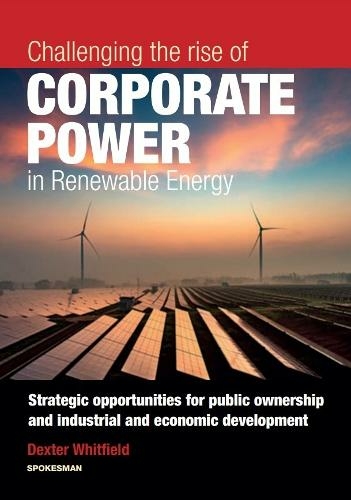
The 1968 long hot summer was heated by strikes, protest and a generational revolt. The summer of 2023 has all three but only in bits 'n bobs and without the sense of being on the edge of epochal political change. Instead our hot summer marks a different sense of such change, record-breaking temperatures for the umpteenth year in a row, southern Europe now approaching a sub-saharan climate while the sub-saharan itself is becoming uninhabitable, Northern Europe including the English south coast enjoying the Mediterranean heat. An enjoying' accompanied by soaring summertime mortality rates, the connection barely remarked upon. Greenwashing aids and abets such obfuscation. Dexter Whitfield offers an alternative, a renewable energy programme rooted in saving the planet not saving the fossil fuel industry from itself. More than enough to brighten up any beach read.
10. Andreas Malm How to Blow Up a Pipeline : Learning to Fight in a World on Fire
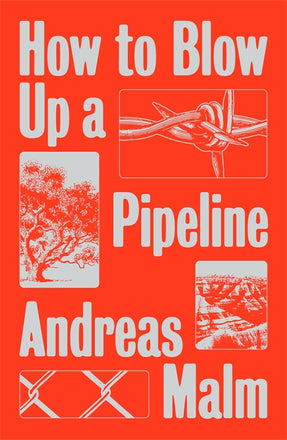
And if all else fails Anders Malm's book has the title, and as they say major motion picture, to put paid to all our nightmares of where long hot summers, and flood strewn other seasons, may be leading us to. This is a book as weapon, a manifesto for forcing change framed by the legacy of the suffragettes' direct action, civil rights movement protests , anti-apartheid boycotts, national liberation armed striggles. And updated to force us to consider how far we would go to save our planet from itself. If in doubt of the the answer ask the question how each and every one of those struggles was won.
Available from Verso here
Note no links are to Amazon, if low-wage employer tax-avoidance corporations can be avoided to purchase books, please do so.
Mark Perryman is the co-founder of the self-styled 'sporting outfitters of intellectual distinction' aka Philosophy Football
What the 2023 Women's World Cup might change
15.07.23
On the eve of the tournament kicking off Philosophy Football's Mark Perryman has a ponder

"Italia '90 was a watershed for English football. Post-Hillsborough, post-Heysel, post-awful 80s hooliganism. It wasn't just a working-class sport anymore. It was a national sport for everybody." Gary Lineker
Gary's right. Italia '90 was without doubt a glorious moment. But one that was then transformed to enable the wholesale transfer power from football's governing bodies, at least nominally governing in the interests all, the richest clubs only interested in their own, and now super-charged, financial self-interest. AKA mod£rn football.
So deep breath, what might become of the aftermath of the women's game's glorious moment, England winning the 2022 Euros.
Well first off, instead of losing in the most dramatic of fashions, a feat the men's team repeated at Euro 2020, but this time in the Final, at Wembley, the women won, and at home. Those two factors are of course crucial. The men losing meant the 2022 final was only remembered for flare-up-the-arse man, mass antisocial behaviour on Wembley Way, and online racial abuse of the three black missed penalty takers.
The women? A near faultless campaign, a team made up of hugely engaging personalities, a thrilling final, the whip off the shirt sports bra celebration, beating Germany (Germany!) at Wembley. No, not 1966, this was 2022 and women, not men ending England's 56 years of hurt. Who would ever have thought it?
And since then England have beaten the reigning World champions, USA, and reigning South American champions, Brazil, both in front of full-to-capacity Wembley stadium crowds. Despite a raft of injuries affecting key players from the Euro '22 winning-squad anything less than the semis at the '23 World Cup would be considered a disappointment.
Will that be enough to sustain the momentum since 2022? Possibly, though of course nothing like the impact of winning the World Cup! Now that would be off the scale, to put even '66 in the shade.
But before we get too ahead of ourselves what's the current state of the women's game post '22?
Domestically more and more clubs are hosting their Women's Super League and Women's Champions League games at the men's club grounds. For the most part to sold out or near capacity crowds. For the spectator sport side of football this is both unprecedented and most welcome. Yet with precious few exceptions hardly any of the women's clubs have a ground they can call their own, playing games at lower division or non-league grounds miles away from the men's stadium, in many cases not even in the city or town the club is named after. Chelsea have tried something different, bought up AFC Wimbledon's old ground, Kingsmeadow in Norbiton, and turned it into a tasty little stadium for their hugely successful Women's team shared with men's age group teams. Manchester City have done something similar with a mini-stadium just a long throw-in away from the Etihad. Both give their women's teams a home to call, and make, their own.
However, women's clubs lack of their own, or to use the classic feminist term 'autonomous', identity is rooted in the structural not simply the geographical. The classic account of Italia '90 All Played Out was written by Pete Davies and was a runaway 1990 bestseller. Six years later Pete shocked his publisher, and no doubt a lot of readers with instead of a rewrite for the Euro '96 version, same result, out on penalties to the Germans, I Lost My Heart to the Belles. Long before the popularity of the Lionesses, Pete's book revealed the community and spirit of at the time the most successful women's club team, The Doncaster Belles. And the book inspired a fictionalised BBC series too Playing the Field that ran 1998-2002. For what an autonomous women's game might look like neither can be bettered.
Of course, the resources ploughed into their women's clubs, including crucially professionalisation, by Chelsea, Arsenal, Manchester City and Manchester United are to be welcomed but it has come at a cost. Clubs like the Belles now hardly exist, certainly not at the elite level, the Belles themselves subsumed into Doncaster Rovers. It is scarcely credible this process won't be to the detriment of shaping a specific identity for women's club football. And at the same time has produced the total domination of the women's top division and cups by more or less the same 'big 4' as the men's game. But in the men's game this unwelcome process took several decades, in the women's game it has been achieved in a matter of a few seasons. This is what accelerated mod£rnisation looks like.
My own club, Lewes FC is in part an exception to this frankly depressing picture. The non-league part-time semi-professional men's team play in the Isthmian Premier League. The full time professional, including a good number of internationals, women's team play in the Women's Championship. Quite a contrast, enabled by the ideas and financing of the club's pioneering Equality FC initiative. Though even with all this whether Lewes FC is still thought of as primarily a 'men's club' is a moot point.
A new wave of participation as players, driven by school and grassroots football does at least offer the basis of a different model. And while the spark was the Lionesses success, there's been a welcome break from the flawed mantra of the 'role model'. In its place a focus on dramatically improving the number of girls able to play football at school. This at least has the rudiments of an understanding that sport, and in particular participation, is socially constructed.
The initial results are encouraging but this was from a very low base. And the same with boys, school sport is the relatively easy part to fix, what happens when they leave school and compulsory PE lessons is an entirely different matter. Competitive team sports are one of the worst versions of physical activity to encourage lasting participation, once not picked for the first team interest plummets. If participation levels are to be sustained the much bigger challenge is to foster a culture that values all those who want to play, women's football as a social space as much as a competitive sport. What might be characterised as the women's equivalent of Sunday league park football. And this most of all demands resources, starting with having a park which has a pitch to play on!
And the global game we are about to enjoy in the shape of World Cup 2023? The spread of winners since World Cup 2011 albeit restricted to just two, Japan and USA (2), would appear to show how markedly different the women's global game is to the men's. With China, and Canada numbered amongst the quarter finalists through the period this seems to further emphasise the point. And while it might pain fans of the men's England team but back to back England World Cup semi-final appearances is something not even Gareth Southgate has managed, nor any other England manager for that matter.
So far, so different, but the women's World Cup in another way isn't so very different. No African winner, semi-finalist or even quarter finalist. FIFA's effort to affect this imbalance is exactly the same as for the men's game. To expand the tournament first from 16 to 24 for the 2015 tournament and just 8 years later to 32 for 2023. Again accelerated mod£rnisation. And in the process necessitates co-hosts, divided by an ocean, which only serves to undermine the cohesion of a tournament, a single host stamps its identity to make the World Cup really special, for travelling fans and those watching on TV, co-hosts really struggle to do so.
The 2023 debut teams Philippines and Vietnam, Zambia, Haiti, Panama and Republic of Ireland, well let's see if any get out of their groups. This is a FIFA top-down rebalancing act, a fast-forward version of the men's. Far better would have been to keep to 24 nations, with a single host, but invest seriously in the confederation tournaments to raise the standard of the game globally. In hock to the Arab petro-dollar states, the striking absence of teams from this part of the world, unlike at the men's tournament, goes largely unremarked upon by FIFA, maybe something to do with women being banned from playing football in these countries?
Once the tournament begins, whilst it's important not to forget these various failings, all England fans' eyes will be on the Lionesses progress. In the Group Haiti up first should be a walkover, Denmark failed to get out their group at the Euros, China have been a major power, Quarter finalists in 2007 and 2015, almost made knock out states in 2019. Still, anything less than England topping their group would be quite an upset. Group 16 stage? Hope for Canada and avoid the hosts Australia, though either should be beatable. Quarters, when England men usually exit, if pluckily, toughest opponent so far Germany and desperate for revenge after the Euros. But not quite the force they once were, if England advance expect Lionesses-mania to take over. The quarter arguably a tougher proposition than a semi likely to be against France or Australia, either beatable unless the home advantage has fired up the Aussies (and losing the Ashes, yes please!). The Final, having to date avoided the reigning World Champions, well it has to be the USA, and you know we beat them only last year and weren't far off doing the same at World Cup 2019 either. Get the bunting ready? We can but hope.
Will any of this change the world of English football, not to mention anglo-masculinity? Not entirely, but neither would be quite the same ever again. Good.
Further reading
Pete Davies I Lost My Heart to the Belles
Suzanne Wrack A Woman's Game: The Rise, Fall and Rise Again of Women's Football

The Philosophy Football Lionesses World Cup 2023 T-shirt is available from here
Mark Perryman is the co-founder of the self-styled 'sporting outfitters of intellectual distinction' aka Philosophy Football
Why the NHS matters so much to so many
01.07.23
Philosophy Football's Mark Perryman celebrates 75 years of a nation being looked after
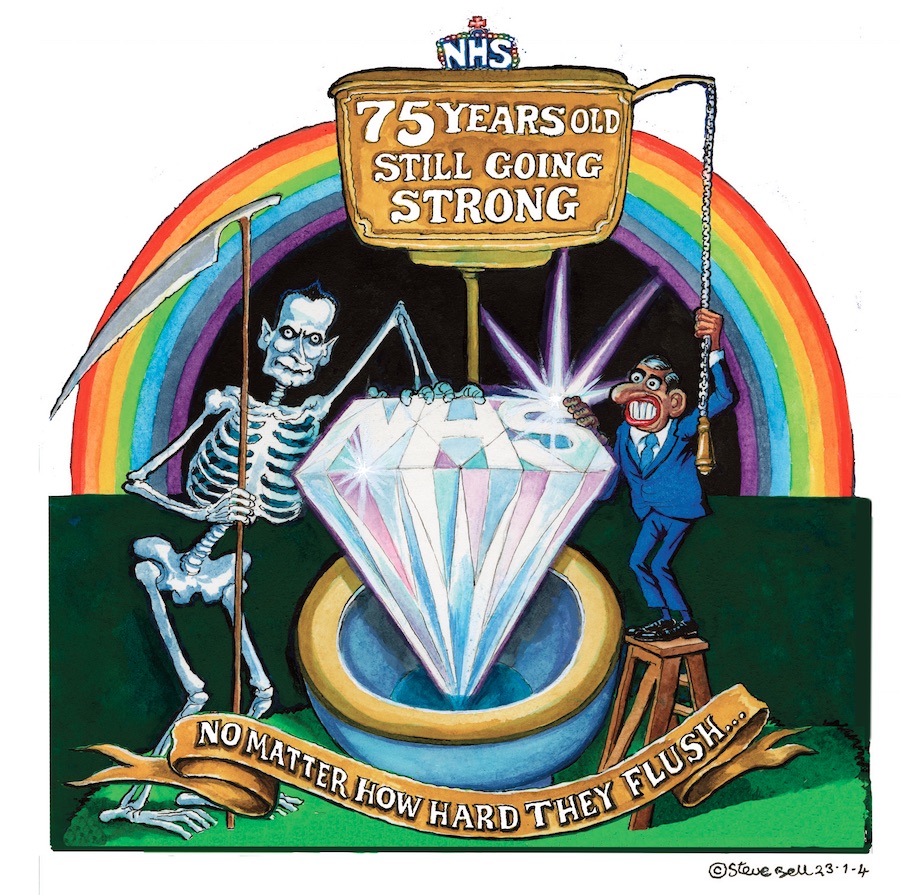
5 July 1948 the National Health Service was born. The architects of this most magnificent endeavour, Labour firebrand socialist Aneurin Bevan, a sort of 1940s cross of Tony Benn and Jeremy Corbyn, with archetypal social democrat economist John Maynard Keynes and liberal reformer William Beveridge. A curious mixture, today we might call it a 'progressive alliance' in those days the 'popular front'. A politics of co-operation, extra-parliamentary as well as at Westminster, founded in the 1930s with anti-fascism the core. At home to stop in the streets Mosley's blackshirted British Union of Fascists, abroad to defend on the battlefield Republican Spain from Franco's fascists
It is scarcely remarked upon by the cult of the Churchillian that in the year arguably Britain's greatest-ever wartime leader secured final victory against the Axis Powers of Nazi Germany, Fascist Italy and Imperial Japan Churchill led the Tories to one of their heaviest ever defeats. Churchill's much lesser-known deputy in the world War Two coalition government, Labour leader Clement Attlee captivated the electorate with his pledge to 'Win the Peace'. Our allies, the USA had their new deal, the Soviet Union their five-year plan. Both in their (very) different ways an effort at a fundamental redefinition of politics and in the process attracting global popular support. Now Britain was to have its own, and also different, go Attlee's post-war settlement was founded on five momentous changes. The Welfare state, nationalised public utilities, free, including university, education, full employment and the creation of a National Health Service. Campaign pledges, turned into institutional change once in office.
Bevan summed up the scale of ambition and achievement beautifully: " We have been the dreamers. We have been the sufferers. And now we are the builders." The NHS is widely regarded as the pinnacle of this shared purpose. So much so that for the intervening three-quarters of a century the NHS is often described as the closest the British have to a state religion. It is worth remembering therefore in all the hoo-hah of the anniversary that it was created in the teeth of the fiercest opposition from the Tories who described the NHS as nothing less than communism, while the main doctors' organisations resisted this most momentous change with a diehard defence of their previously over-privileged professional position.
Labour's failure to find an effective response, to build a popular bloc in support of the new settlement, to be proud and public about the scale and consequences of what it was setting out do contributed to Churchill's comeback General Election win in 1951. Attlee would never lead Labour to victory again, Bevan became both a compromised and marginal figure. Yet what both had created, the ideas of Beveridge and Keynes, remained in place, largely untouched for the best part of 40 years. The post war settlement transformed into a post war consensus, neatly encapsulated by a 1960s politics buzzword `Butskellism' that signified the large scale agreement by the two leading figures of political renewal, Tory Rab Butler and Labour Hugh Gaitskell.
All of this was to change in 1979 and Margaret Thatcher. Not in one term, not by one leader not by one party, but all the core components of the post war settlement dismantled, never to be replaced. Public utilities privatised under Thatcher none renationalised by Labour. State schools handed over to the private sector masquerading as Academies, a device massively expanded by Blair. University tuition fees introduced by Major, grants replaced by student loans by Blair, the cost of tripled by Cameron with the support of Lib Dems, and as a result universities now entirely marketised. Full employment as government's first priority dropped by Thatcher, rates of poverty soared ever since.
So come next Wednesday a celebration or a wake for the NHS? In theory its founding principle, or to continue the state religion thesis, creed, remains intact. Providing care based on need free at the point of delivery. But visit any modern hospital and those bright shiny ideals are rusting away. Vast 'super ' hospitals replacing closed down local services, funded by Gordon Brown's flagship economic strategy, PFI (Private Finance Initiative) leaving the NHS in ever-increasing debt to financiers for decades to come. Scanners and all sorts of other medical services operated by private companies to make a profit out of the NHS. Entire ambulance services operated by the private sector. Ditto hospitals' vital ancillary services. The nurses and doctors the nation clapped for through the Coronavirus crisis denied years' worth of wage rises just to keep pace with inflation forced to launch the biggest strike in the NHS 75 year history, for what? A living wage.
And there's an irony barely remarked upon with two 75th anniversaries taking place in the space of a few weeks. First Windrush, second the NHS. No institution in our society is as much loved as the NHS or so dependent, from top to bottom, on migrant labour. In all this feverish hatred of the very idea of immigration the NHS is testament to how immigration is a benefit to our society and economy, not a cost. For all of Labour's welcome talk of training thousands of new doctors and nurses - though the training infrastructure for such a ambition is almost entirely absent - it would be good if the fact the foundation, survival and future of the NHS are all impossible without immigration.
We celebrate the NHS as a popular institution, one many of us could quite literally not live without. Precious, sometimes flawed, right now more vulnerable than at any point in its history. Rates of obesity at an all-time high, levels of physical participation at an all-time low, the vape replacing tobacco smoking with the same health dangers this entails, the scourge of gambling addiction and all manner of other versions of mental health problems, an ageing population with dependents who have neither the time or the money to provide the care previous generations gave. The idea of the 'Nanny State' has become much reviled but in the shadow of war this is precisely what the NHS and wider welfare state represented. A society that takes the responsibility of caring for all. With apologies to Hattie Jacques not so much Carry on Doctor, Carry on Nanny.
 The NHS 75th anniversary mug designed by Steve Bell is available from here
The NHS 75th anniversary mug designed by Steve Bell is available from here
Mark Perryman is the co-founder of the self-styled 'sporting outfitters of distinction' aka Philosophy Football
Why the Europa Conference League matters more than the Champions (sic) league
09.06.23
Philosophy Football's Mark Perryman ponders a week of European Finals

For anyone wondering if the Europa League matters I suggest asking Jose Mourinho, who last week found himself on the losing side in the competition's final. And as for this supposed poor relation's poor relation, The Europa Conference League, West Ham fans will tell precisely the scale of it mattering once they've fully recovered from celebrating Wednesday's victory.
But come Saturday night all of this will be condemned to pale insignificance with the Champions League Final heaped upon us. Should it?
First off, its not the Champions League, its the Champions and runners-up league, or to be strictly accurate to give the competition its full, if unofficial, title, 'The Champions and Rich Runners-up League'. When the competition was founded in 1992 it was with the express intent to create a cartel, to protect the interests of the biggest leagues - Premier League, Bundesliga, Serie A, La Liga - and the richest clubs therein. The predecessor, the vastly superior European Cup, failed to do this, champions only, and a knockout competition with no seeding left them vulnerable to being knocked out in the first round, my heart bleeds, its called 'the luck of the draw'.
Second, despite the brilliant fans' opposition to the European Super League, dumping the self-interest of their own clubs for the greater cause of a fair and equal competition, the Champions League drive to cartelisation continues unabated. Champions plus up to 3 runners-up creates a them and us top division. Group stage and seeding simply exacerbate, while the forthcoming transformation of the competition into effectively into a mid-week league completes the process, not that the greed will stop there.
Third, Despite Marseille's win in 1993 and Mourinho's Porto win in 2004 there's not a single surprise amongst the list of all the other Champions League winners. The chances of a repeat of Brian Clough's back-to-back 1979 and 1980 European Cups with Nottingham Forest, unarguably the greatest achievement of any English club manager and team, next to zero, or for any plucky outsiders from across Europe, such as Celtic's win as Scottish Champions in '67, either.
So dreadfully predictable? More or less. However, the vast petro-dollar riches underpinning Paris Saint Germain hasn't got them their most sought-after trophy yet, just to prove that economic determinism doesn't always triumph on the pitch. Whether Manchester City can usher in a period of continental dominance to follow their domination of football domestically, we haven't long to wait and see.
But, p'raps unwittingly (almost certainly so) the Champions League behemoth has opened up beneath it a more plural, equitable version of European football. Before the Champions League era there was the Cup-Winners Cup, in England the FA Cup winners qualified, and the UEFA Cup that in 'old money' the League Cup winners qualified for too. The Cup Winners Cup was abolished, the League Cup no longer offers a European place. This seemed to close off Europe for less fancied teams who'd proved themselves to be 'up for the Cup'. The likes of Wigan and Portsmouth, Swansea and Birmingham City. But such wins now are now next to non-existent. The Cups won by the same-old-same-old big six clubs with a squad extending to a second team stuffed full of first-choice internationals, and thus able to sustain cup runs alongside the all-important race for the Champions League spots. Meanwhile such are the riches of the Premier League almost every Championship club come January prioritise league over cup, and in the hope of joining that promotion race a year hence too, most League One clubs (the Orwellian renaming of what clearly is the second and third divisions the subject of a future critique) doing likewise.
Thus, even if those European competitions had remained as the prize for cup success few if any clubs outside the Premier League big six would have qualified (losing cup finalists have almost all been from the big six clubs too).
However, the Europa and Europa Conference Leagues have opened up such an opportunity. The impact of which is best represented by Aston Vila's last home game, versus Brighton and Hove Albion as each club's fans serenaded the other lot with 'We're all going on a European Tour.
OK Liverpool, after a failed attempt to grab the fourth and final Champions League spot made it into the Europa League, but Villa, relegation candidates as the New Year began, Brighton who'd never qualified for Europe before, this really meant something, And Brentford had been in with more than a sniff too. And not so long ago Leicester (twice) Wolves, Burnley, Middlesbrough (twice), Southampton (twice), Stoke have made it in too.
Plus the imaginative topping up of the trophy win with promotion to the next level of European football means West Ham are now guaranteed to play in Europe for the third season in succession, something even Bobby Moore's 1965 Cup-Winners Cup-Winning West Ham side didn't achieve.
And while only Porto from outside Europe's major leagues is yet to win either trophy it is the major league fair to middlin' sides of West Ham's kind of stature that have triumphed; Sevilla, Eintracht Frankfurt, Roma and the like. And in this instance the group stage format enable clubs outside these major leagues to sustain their interest in playing in Europe too. Will all this add up to an upending of European football's inequalities. Nope. But it does at least give a glimmer of hope for those who qualify neither as Champions nor rich runners-up. Enough to put a smile on faces painted claret, blue or otherwise.

Philosophy Football's limited edition West Ham Europa Conference League Winners shirt is available here
Mark Perryman is the co-founder of Philosophy Football, the self-styled sporting outfitters of intellectual distinction and pioneer of the Football, Culture and Community module at the University of Brighton.
Matched of the Day
18.03.23
Philosophy Football's Mark Perryman can't wait to hear what Gary Lineker has to say for himself on Match of the Day's return tonight

Gary Lineker himself admitted, in a tweet naturally, that as a public figure he had hitherto only attracted such a wave of affection when scoring England goals in a World Cup. His Italia '90 campaign was famously made into a hugely successful stage play An Evening with Gary Lineker that superbly caught what for those of a certain age Gary will always means to us, back then and now, until last week.
It wasn't exactly a surprise that he holds broadly liberal opinions, perhaps not Guardian-reading tho' his first stab at commenting on games started with a column for the Observer sports pages, and maybe tofu isn't on the menu for his halftime Match of the Day snacks but wokerati? (obligatory Philosophy Football product placement, yes we do the T-shirt). Guilty as charged.
The faux outrage at this has been quite something to behold. An ex-footballer, now a football presenter with opinions that stretch beyond interpreting the offside rule, well we never. There is a whiff of class-snobbery about this, presenting football on the TV for the brawny beyond the pale. Whereas presenting The Apprentice, Karen Brady and Alan Sugar, or set piece interviews with party leaders during a General Election, Andrew Neil, for the brainy and natural, actively encouraged to have opinions coming out of every possible orifice.
But there's a left version of this too ,wrapped instead in faux anti-establishmentism. A sanctimonious brand of socialism, thankfully a minority trend but highly vocal with its shrillness of denunciation. Where was Lineker on what march? Has he ever campaigned for refugee rights before? Why won't he talk about open borders, freedom of movement, no immigration controls? And his failure to do so means it should be Me! Me! Me! stirring it, not him.
Oh, and he once tweeted 'Bin Corbyn' so how can he possibly be one of us? Point missed, by a mile. The very effectiveness of his intervention is because he isn't 'one of us'. A popular politics embraces, in fact positively welcomes those, we don 't entirely agree with on A and B because we do agree with on C. Or as I prefer 'my front is Popular'. For the avoidance of doubt 2015-2019 I was in favour of anything but 'binning' Corbyn but to narrow defending asylum and refugee rights to an absolutist Corbynite Left can only condemn ourselves to purity of purpose in the cause of wholesale defeat.
In my political lifetime there have been two instances when such miserabilism was for once marginalised. Firstly the 1978-79 dynamic growth and success of Rock against Racism (RAR) which allied with the Anti-Nazi League served to defeat the very real threat of the Far Right, in the shape of The National Front. Secondly, the huge march and movement against the Iraq War. Neither would have happened without the dedicated organisational capacity of the Trotskyist Socialist Workers Party (SWP). For a second avoidance of doubt I am not nor have I ever agreed on very much with the SWP, let alone been a member. Yet in the case of RAR they centred anti-fascism on music, namely punk, quite unlike traditional political organising, then or for the most part since. And to help build the 2 million strong Stop the War march they understood that vigorous support of the then Piers Morgan edited Daily Mirror was somewhat more crucial, than Socialist Worker. Despite historical disagreements, in those two instances their Front was popular too.
The digital era, of which the reach of, and reaction to, Gary Lineker's tweet is very much a product of, has helped produce a kind of pop-up version of this popular version of politics. Black Lives Matter and #MeToo (over here particularly around the Sarah Everard rape and murder) and most recently the vigils following the transphobic murder of the teenage Brianna Ghey. All three were instant, huge and for those who took part incredibly emotionally charged in a way a parliamentary politics virtually never is. But those most ready to decry what goes on in Parliament as boringly irrelevant all too often have their own version of the dead hand of politics, the cult of activist privilege, the imperative to give more and more of ourselves for what rapidly becomes ever decreasing outcomes achieved by ever dwindling numbers.
Of course, a single tweet isn't going to change the world. But what Gary's managed to achieve was to shift the scale of was is possible in a way most of either parliamentarianism or activism fails and in a manner that is positively ancient. This 'I am Spartacus' moment captured the movie scene that made it popular so old few of today's generation are familiar with the films of the son of the star who starred in it famous, 79 year-old Michael Douglas, let alone the original 1960 version, his dad Kirk Douglas. I am Gary Lineker, 2023's version, featuring Wrighty and Chappers, with a supporting cast of Alan Shearer, Micah Richards, Alex Scott, Dion Dublin, Jermaine Jenas. I am Gary Lineker? No I'm Gary Lineker and as a glorious consequence not a single commentator, pundit, presenter or reporter available to make not only last Saturday night's MOTD possible nor Football Focus, Final Score and MOTD 2.
And limited to 280 characters a tweet does have a tendency to truncate any messaged in an unhelpful way, only to be exploited by those who disagree in any case with all remaining parts of it. However bad any Tory government, minister or policy none are remotely comparable with Nazi Germany. But those who diss any historical antecedents to the present might be careful what they ideologically wish for. A cursory examination of British politics of the 1930s will find umpteen examples of politicians and newspapers most notably the Daily Mail, warning against letting all these Jewish refugees in. The language and arguments near identical, to today's.
No the entire ugly discourse around the right to asylum and the status of refugees hasn't been changed in the course of a week. But when The Prime Minister stands behind his banner 'Stop the Boats' and Labour hastily prints up as its alternative 'Stop the Small Boats' (yes really, I'm not joking) then isn't it time to find the means to say something different?
When as the closing credits roll on Gary's return to hosting Match of the Day tonight there's little doubt he will turn to the camera with his trademark knowing grin. Even though we like to pretend we are what lies behind it none of us as viewers are privy to. But the 'knowing' we can all share is the theorist Stuart Hall's dictum " It is through culture that processes of social change make themselves most dramatically visible." In this regard football helps us make sense of race and nation, gender and sexuality, the local and the global, regulation vs deregulaion,Europe, in ways and on a scale like nothing else. Some on the Right now claim this contest of ideas, for votes, is a Culture War, a home win in the bag. As we (almost) say in football, they thought it was all over, it isn't now.
Philosophy Football 's I Am Gary Lineker T-shirt is available from here
Mark Perryman is the co-founder of Philosophy Football and the originator of the pioneering Football, Culture and Community module at Brighton University.
- The Death of Innocence
27.12.25 - Thatcherism Today
04.10.25 - Top Ten Books to Understand Labour Conference
26.09.25






